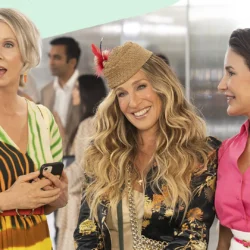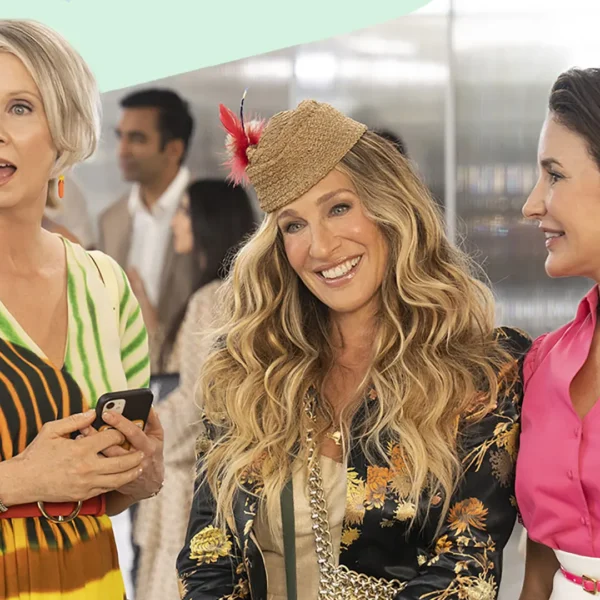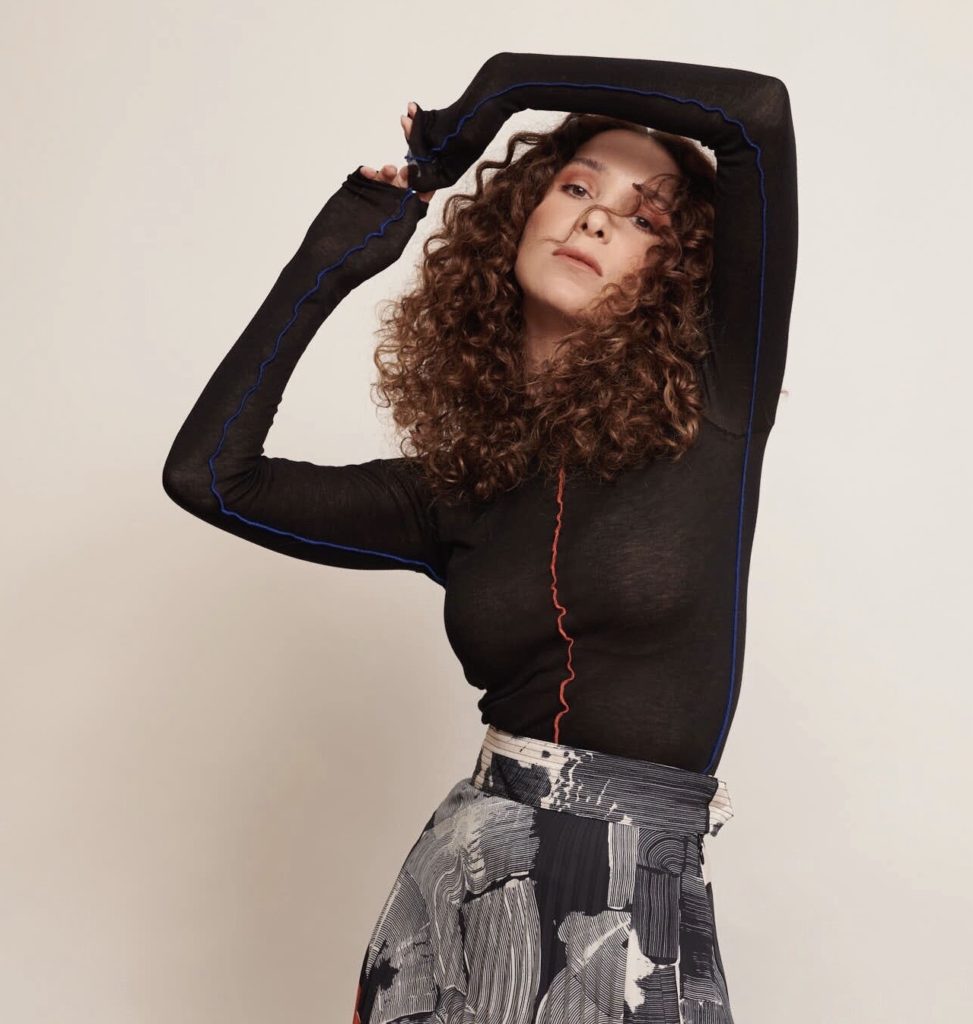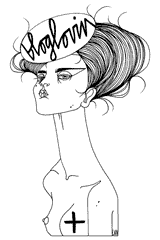There’s something about performing at Coachella Music Festival that gives a
feeling of validation for to artists. It makes sense; It’s one of the biggest music
festivals in the world, and it’s held s in the United States, where different
cultures from all around the world have some sort of presence, but not always
representation. It is a big stage, literally and figuratively. This year, that stage
included a new voice, one that pushes Coachella to be as inclusive as the festival
(and the country it is located within) prides itself on being. “We’re making
history, honestly,” said Elyanna in an interview for ABC News ahead of her
performance at Coachella. “The performance is all about our instruments, and our
vocal skills, and our attitude as Arab girls. It’s just.. representation. The
performance is my culture, it’s who I am.”
Indeed, Elyanna made history this year. She was the first Palestinian artist to ever
perform a full set in Arabic at Coachella. And while her distinct husky voice, her
charismatic youthful presence, and her Middle Eastern dance moves are all worthy
of praise, all the publications ahead of her performance focused on her one thing:
her identity as a Palestinian. From GQ and Cosmopolitan Middle East to Good
Morning America, the headlines looked almost identical; “Palestinian Singer
Elyanna Makes History by Performing in Arabic at Coachella.” The coverage
made it seem like if she wasn’t a Palestinian singing in Arabic or if it wasn’t for
the sake of press around ethnic diversity, her appearance at the festival was done for the sake of diversity and diversity alone.
Elyanna is one of a young generation of artists who have to carry both the blessing
and the burden of identity politics, and represent their culture in their artistry. She
cannot be just an artist; she is a Palestinian artist. It is not necessarily a bad thing.
Bad Bunny, for instance, never missesd an opportunity to talk about the struggles
facing people in Puerto Rico, his home. In multiple interviews, he
has mentioned that representing Puerto Rico is one of his proudest
accomplishments. Bad Bunny performed at Coachella in 2023, and he made history by being the first Latinx artist to headline the festival.
Lizzo made an entire career based on size representation and body-positive
advocacy, as many of her songs revolve around normalizing a “Big Grrrls” body.
She represents these standards not only through her own body but also through the
people she chooses to work with, like her dancers.
Even for Beyoncé, the queen (B) of music awards, with all her 32 Grammys, it was
only in 2018 that she was reported to make history by being the first Black woman
to headline Coachella and represent her culture with the “Homecoming”
performance celebrating the artistic legacy of HBCUs.
While all these artists are talented, each in their own individual way, they all
perform with an intention to prove to the world, through the validation stamp of
America, that their heritage and culture are worthy of appreciation. Nobody
expects Justin Bieber to represent Canada in his art. Nobody expects Miley Cyrus
to represent thin young women in her performances, either. It is always the
marginalized and politicized cultures and communities that must carry the burden
of representation on their shoulders.
For Palestinian artists, thise burden is constantly being waged under the ongoing
Israeli occupation and apartheid. In 2021, the Israeli court ordered six Palestinian
families to vacate their homes at Sheikh Jarrah in East Jerusalem. They had been
living in these homes for generations, but the court forced them to leave, making
way for Jewish settlers to replace them. Following the events, Palestinians
protested all over the country and the world, and a major outbreak of violence
erupted in Israel, followed by a violent Israeli attack on Gaza.
Tamer Nafar, a Palestinian rapper whose artistry revolves around Palestinian
resistance, canceled his shows in solidarity with the struggles of his people during
that time. Yusor Hamed, a Palestinian musician focusing on Palestinian culture,
canceled her shows, too.
In 2022, Israel killed the Palestinian journalist, Shireen Abu Akleh, one of the most
esteemed journalists in the Arab world. Major protests erupted again all over
Palestine and Israel following her killing. Palestinian singer Lina Makhoul had a
scheduled show on the same day, which she canceled in grief over Shireen’s death.
In fact, death and violence in Palestine are constant. Israel has been displacing, torturing, and killing Palestinians not only in 2021 and 2022, but since its formation.
While most Palestinian artists strongly agree that representation of the Palestinian
struggle, heritage, and culture is crucial, they also have mixed feelings about the
burden of representation that they are expected to carry. “ I don’t want to be put in
an ‘ethnic box’, but representation is very important for us as people. This is my
job, I prepare for my shows months in advance,” said Yusor Hamed. “People still
go to their jobs in the office, yet artists are expected to cancel their shows. Who
said that we can’t be sad and sing? We grieve in our art,” she added.





